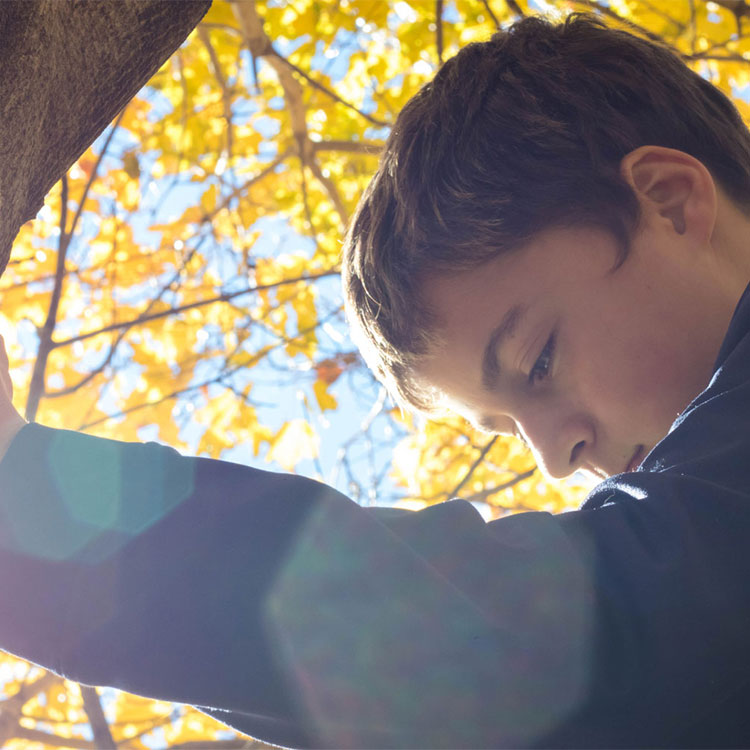A study published in the Journal of the American Medical Association estimates that as many as 20% of children will be diagnosed with a concussion during their childhood years1. The CDC warns that this condition can lead to headaches, nausea and irritability2.
Not only is it important to understand and recognize the symptoms of concussions, it is also imperative to understand the effects these injuries may have on eye health so you get your child the vision care they need.
Let’s take a look!
What is a concussion?
The CDC defines a concussion as a brain injury that results from a sudden bump to the head or a rapid shaking of the head from side to side. When this occurs, the brain shifts back and forth within its protective casing. This may cause swelling, bleeding, stretching or damage to brain cells3. The person may become temporarily unconscious from the shock.
Most concussions are not life-threatening. However, severe or repeated concussions can have lasting effects on memory, motor skills and other functions of the brain related to vision.
Vision symptoms that may follow a concussion
The following eye health concerns could indicate that a child may be suffering from a concussion4.
- The child may complain about experiencing blurry vision. Even if the child doesn’t tell you about it, you may notice that they have trouble grabbing or catching something because of this.
- They may experience sensitivity to light and in some cases, light may even feel painful.
- Words or objects may appear to move around when they’re really standing still. This may lead to reading problems and your child may become frustrated when asked to read something.
- Reading and listening comprehension may become difficult.
- The child may experience double vision, which causes struggles knowing where an object begins and ends.
- The eyes may physically ache – all of the above place extra strain on them..
- Tasks that are visually stimulating may cause acute pain or headaches.
- The child may actually lose a portion of their sight, narrowing their peripheral vision.
- Additionally, the child may have eye problems like an inability to track movement, trouble quickly moving their line of sight, focusing challenges or issues with coordination between the eyes.
Sometimes the symptoms mentioned above are fleeting and may only last for a few minutes. However, if the brain injury is severe, rehabilitation or treatment may be needed.
Rehabilitation & treatments
A medical professional will need to determine the proper course of treatment for someone who is experiencing vision problems after a concussion. Depending on the nature and severity of the problem, your doctor may recommend one or more of the following treatments4.
- Optometric vision therapy – This is like physical therapy for the eyes and the part of the brain that affects eyesight. It involves a set of exercises designed by your optometrist to treat the specific type of vision challenge associated with your child.
- Neuro-optometric rehabilitation therapy – This often involves special lenses, which help compensate for the effects of the concussion.
- Phototherapy programs – These programs encompass various forms of light therapy that can help restore some vision loss caused by concussions.
Preventing concussions
The best thing you can do as a parent is to take reasonable steps to protect your child from brain injuries and the associated eye problems we’ve discussed. Here are some important ways you can help prevent these injuries for your children5.
- Know the rules — Schools, coaches, community organizations and other similar bodies should know the rules related to children. You need to know them too to ensure they’re being followed.
- Ask to attend practices — During practice, coaches or children may have their guard down making them more injury prone. Find out how practice is managed and don’t ignore practice injuries.
- Don’t put all of your faith in equipment — Yes, a child should wear a helmet when riding a bike or playing football, but just because a helmet was worn, doesn’t mean that a concussion did not occur.
- Talk to your kids about symptoms — Keep the lines of communication open. Your child needs to feel comfortable telling you if, for example, words are moving around or they are seeing double.
Children’s concussions & their vision
A concussions impact can be very temporary. In some case, however, it may cause more lasting eye health challenges. Being aware of these eye problems will help you spot a possible concussion and seek professional diagnosis and treatment.
Sources:

